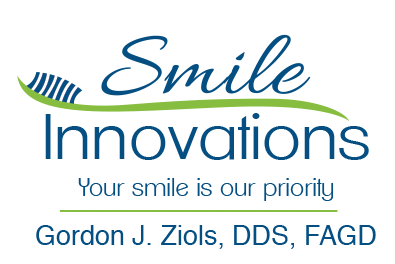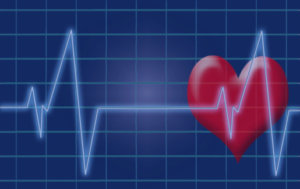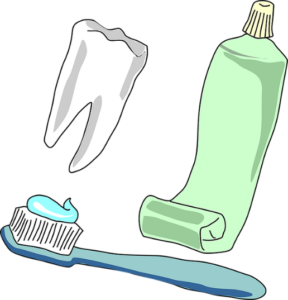Jefferson Park Chicago Dentist
 Nearly everyone has at least one habit that they wish they could break. Did you know that some of them can affect your oral health? Here are a few common habits and tips for how to break them.
Nearly everyone has at least one habit that they wish they could break. Did you know that some of them can affect your oral health? Here are a few common habits and tips for how to break them.
- Nail Biting
Why it’s harmful: Your dental health may suffer from nail biting by possibly chipping your teeth or impacting your tooth. You place pressure on your jaw when you leave it in a protruding position for long periods of time. You could also tear or damage your gums.
The solution: Some patients find it helpful to wear a mouth guard to deter form nail biting. Other ways to reduce nail biting include using therapy techniques, reducing stress, or applying bitter tasting nail polish.
- Brushing Too Hard
Why it’s harmful: It’s best to brush your teeth for two minutes at least twice a day. Make sure to not brush too hard since this can lead to damage to the teeth and gum irritation. When you brush too hard, you risk gum recession and not cleaning your teeth efficiently.
The solution: Instead of brushing hard, use a soft toothbrush and apply a proper pressure. Let your toothbrush bristles touch your gums at a 45 degree angle and reduce the force of your brush on your gums.
- Grinding and Clenching
Why it’s harmful: This can chip or crack your teeth as well as cause muscle tenderness and joint pain. You may also experience a painful sensation when chewing or inability to open your mouth wide.
The solution: Stay aware of your teeth grinding and clenching and use relaxation exercises to keep from doing both. A mouthguard can also help protect you from grinding your teeth while you sleep. This will reduce any tooth pain, or muscle soreness and give you a better sleep. Our dentist can provide recommendations for how to combat teeth grinding.
- Chewing Ice Cubes
Why it’s harmful: Tooth enamel and ice are both crystals. When you push two crystals against each other, it can cause one to break. This may be the ice and sometimes it may be the tooth.
The solution: Try drinking beverages without ice or use a straw instead.
- Constant Snacking
Why it’s harmful: If your diet consists heavily of sugary foods and drinks, you are at a higher risk of forming cavities. The cavity-causing bacteria feast on leftover food and produces acid that attacks the outer shell of your teeth.
The solution: To reduce snacking, eat balanced meals so that you can feel fuller, longer. You should avoid sugary foods when snacking. If you are tempted to eat the occasional sugary snack, just make sure to drink a glass of water after to wash away the leftover food.
- Using Your Teeth as a Tool
Why it’s harmful: Using your teeth as a tool to hold items, open bottles, cut through thread, or other functions can put you at risk for chipped or broken teeth or jaw injuries.
The solution: Your teeth should never be used to hold or open items or to cut things when you don’t have scissors at your disposal. Look for your scissors or find someone that can give you a hand. Your mouth will thank you for it and you’ll be saving yourself from potentially costly and painful dental complications.
Contact our office to schedule your next dental appointment.
5399 N Milwaukee Ave, Chicago, IL 60630


 The human body is a network of interconnected systems and organs. Unfortunately, issues that impact one particular area of your body can also effect the health and function of other areas. Recently, studies have highlighted evidence for links between gum disease and heart disease.
The human body is a network of interconnected systems and organs. Unfortunately, issues that impact one particular area of your body can also effect the health and function of other areas. Recently, studies have highlighted evidence for links between gum disease and heart disease. Nearly everyone has at least one habit that they wish they could break. Did you know that some of them can affect your oral health? Here are a few common habits and tips for how to break them.
Nearly everyone has at least one habit that they wish they could break. Did you know that some of them can affect your oral health? Here are a few common habits and tips for how to break them. Do you suffer from regular sensitivity? Teeth sensitivity is often misunderstood, but our dental team can help you find relief. We’re here to separate the fact from fiction in sensitivity.
Do you suffer from regular sensitivity? Teeth sensitivity is often misunderstood, but our dental team can help you find relief. We’re here to separate the fact from fiction in sensitivity. Did you know your oral health can impact your overall health? We’ve compiled a list of 5 tidbits about your teeth and oral health.
Did you know your oral health can impact your overall health? We’ve compiled a list of 5 tidbits about your teeth and oral health.  X-rays provide useful visual data for dentists to utilize when treating you. Occasionally, guests to our office ask about the radiation from x-rays and the dangers associated with high-exposure. Rest assured, a dental x-ray is one of the safest medical imaging procedures there is. Here’s what you need to know about getting a dental x-ray.
X-rays provide useful visual data for dentists to utilize when treating you. Occasionally, guests to our office ask about the radiation from x-rays and the dangers associated with high-exposure. Rest assured, a dental x-ray is one of the safest medical imaging procedures there is. Here’s what you need to know about getting a dental x-ray.